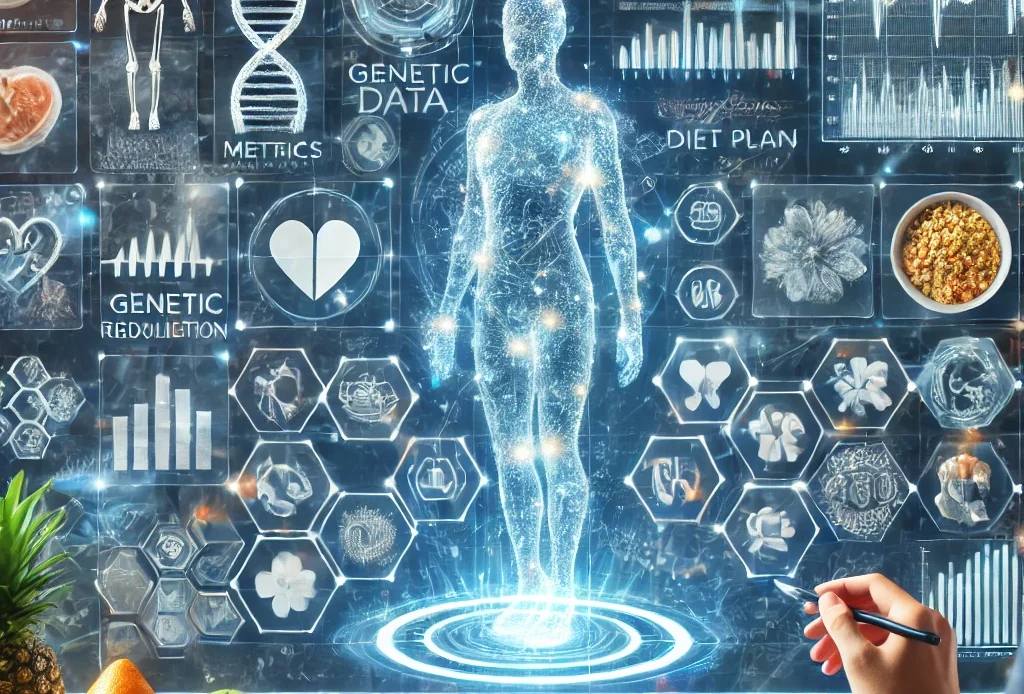Artificial intelligence (AI) has already made waves in many industries, but its impact on nutrition is only beginning to gain traction. Precision nutrition, a field that customizes dietary recommendations based on an individual’s unique needs, is being supercharged by AI. Whether you’re aiming for weight loss, better disease management, or simply a healthier lifestyle, AI-powered tools are becoming indispensable in providing tailored nutrition advice.
The Rise of AI in Personalized Nutrition
Precision nutrition relies on data—lots of it. Factors such as genetics, medical history, lifestyle, and even the gut microbiome all influence how the body processes food. AI algorithms sift through this complex data to deliver personalized dietary advice that traditional nutritionists simply can’t match in scope or speed.
According to studies, AI is revolutionizing how we approach diet plans, offering insights that help people make healthier decisions daily. For instance, AI tools like personalized meal planners can analyze an individual’s current health data and dietary preferences, suggesting meal options tailored to their goals.
How AI Helps Prevent Disease
One of the most significant benefits of AI in nutrition is its ability to prevent diseases before they occur. Through predictive analysis, AI can identify risk factors such as elevated cholesterol or blood sugar levels, prompting dietary adjustments long before symptoms manifest. This proactive approach can help prevent chronic conditions like diabetes, heart disease, and obesity, making AI a crucial player in preventive healthcare.
AI also ensures that users maintain balanced nutrition by flagging deficiencies. If someone is low in vitamin D, for example, the AI can recommend foods or supplements to address this shortfall. By consistently monitoring these metrics, users can make small but impactful changes to their diets, avoiding potential health complications.
Real-Time Feedback and Continuous Monitoring
Unlike traditional nutrition advice, which may require weeks between consultations, AI-powered tools provide continuous, real-time feedback. These systems track what you eat, alert you if you’re veering off your goals, and even recommend instant fixes, such as adding more fiber or reducing sugar intake. Whether you’re at home or at a restaurant, AI can guide your food choices instantly, ensuring you stick to your nutritional goals.
The technology also keeps users engaged through regular reminders and easy-to-follow recommendations, reducing the risk of dropping out of the program. This is essential for long-term adherence, as research shows that behavioral factors heavily influence the success of dietary plans.
The Future of Nutrition is Data-Driven
As AI continues to evolve, the future of nutrition looks increasingly data-driven. AI can already process an individual’s dietary preferences, allergies, and nutritional needs, delivering hyper-personalized meal plans. In the coming years, we can expect these technologies to become even more sophisticated, potentially integrating with wearable health devices to provide even deeper insights into our daily food choices.
By combining powerful data analysis with personalized guidance, AI is poised to transform how we approach nutrition, making healthy eating accessible and tailored to every individual’s unique needs.
Source: This article is based on information from the Decision Lab, EMB Global, and MDPI.
Key Highlights:
- AI algorithms analyze vast datasets to offer hyper-personalized nutrition plans based on genetics, lifestyle, and health data.
- AI helps prevent chronic diseases by identifying dietary risk factors early and suggesting adjustments.
- Real-time monitoring and continuous feedback ensure users stick to their dietary goals, making nutrition advice more accessible and actionable.
- The future of nutrition will be increasingly driven by AI and data, enabling even more precise dietary interventions.




